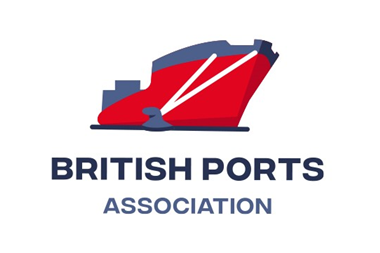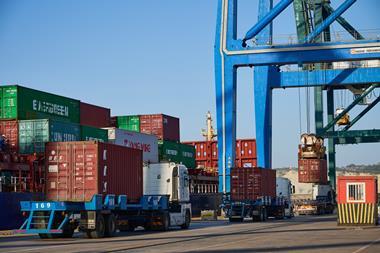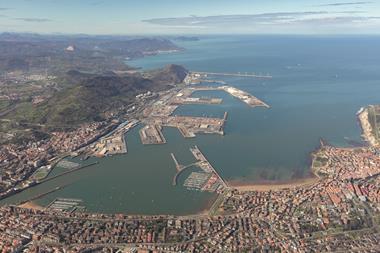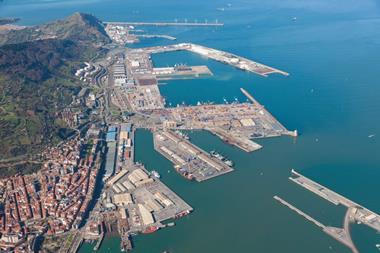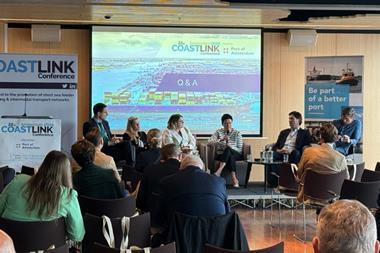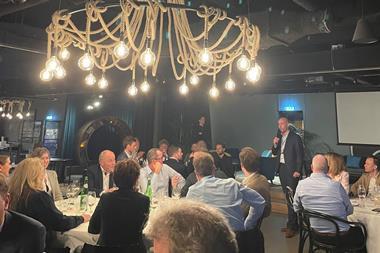Welcoming all attendees to Day 2 of Coastlink where the focus was on improving efficiencies through digitalisation and innovation, our Chairman Nick Lambert invited our Gold Sponsor – Navtek Naval Technologies Inc – to take the floor.
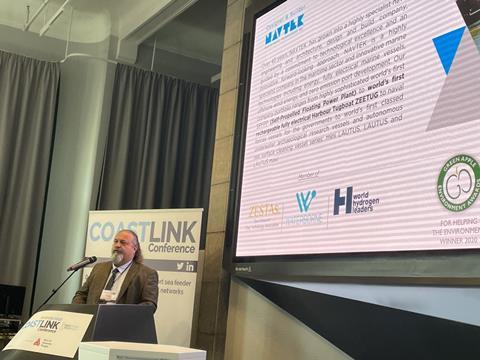
Ferhat Acuner, General Manager of Navtek, focused on the decarbonisation of ports and specifically the work they are doing on the Zero Emission Electric Ports (ZEEPORT) project. The ethos of the project being a fully integrated approach that encapsulates the principles of circularity, water resources management, marine ecology, waste management and air quality. Their preliminary feasibility study includes the use of renewable energy sources – solar, wind turbines, and biomass – to reduce CO2 emissions and noise pollution, driving forward greener and more efficient ports.
Continuing the theme of lowering carbon emissions for shipping, Coastlink welcomed Keynote - Lars Robert Pedersen, Deputy Secretary General of BIMCO – to provide his insight on port efficiency and smart communication. With growing pressure on ports around the world to address air pollution generated by cargo movement operations, Lars Robert stressed the need for improved just-in-time communication, collaboration, and harmonization of the various digital solutions. He highlighted that global standards will enable digitalisation and integration. However, harmonisation and interoperability are key to the success of resilient, sustainable maritime digitalisation – and in particular, the exchange of information.
Talking through their current green agenda – Eleni Bougioukou, Innovation Manager at the Port of Tyne, discussed their transformational journey to be a centre of excellence for clean energy, digitalisation, decarbonisation, and innovation. With goals to achieve Net Zero Carbon by 2030 and become an all-electric port by 2040, Eleni elaborated on the Port’s plans to incorporate HVO fuels, hybrid machinery, solar and wind energy, as well as the electrification of the quayside plant and machinery to help deliver these ambitions. Eleni emphasised the Port of Tyne’s ethos to work collaboratively with other ports at their Maritime Innovation Hub and confirmed that they currently have 28 projects on-going focused on decarbonisation and innovation.
Raoul Tan, Director of Naviporta at the Port of Rotterdam then took the floor to outline the Naviporta platform - a model for making international trade flows smarter and more efficient. Discussing the need – post-Brexit – for a streamlined process, Raoul provided his insight on their pilot project and “how to propel trade between the EU and the UK”. Working with partner ABC Logistics on the pilot, the platform delivers direct integration with UK customs including proof of authenticity, creating shorter lead times and improved certainty on delivery.
The final panel session of the day turned to ‘Digitalisation and Innovation – can we benefit from this now?’. Attendees heard from Richard Ballantyne OBE, Chief Executive of the British Ports Association, Norbert Kouwenhoven – Strategy & Innovation Adviser at the Dutch Customs Administration, plus Andre Fabik, Technical Sales Manager at L3Harris. Matters including the benefit of 5G Networks, the challenges with cybersecurity, the application of autonomous vessel technology in use at ports and the regulatory standards being adopted were all addressed. Norbert highlighted the Data and AI technology available across the industry and that “a lot of data sharing is going on already – it is part of the logistics ecosystem”.
Data sharing, collaboration, digitalisation, and innovation - all key themes that were discussed and debated through-out the 2-day event at Coastlink. Attendees agreed that there is work to be done on these topics but they are central to the future of the market.


